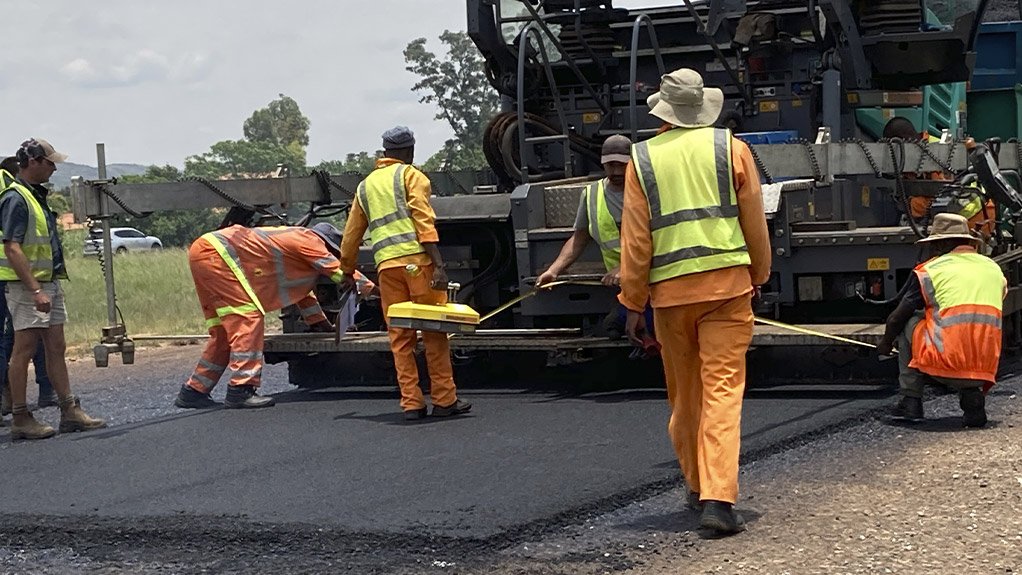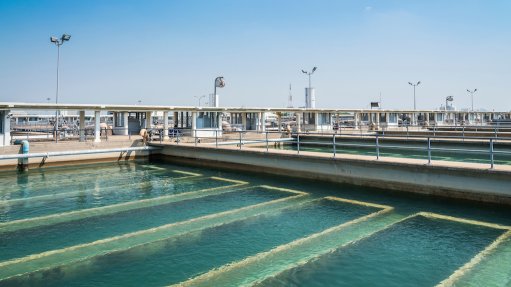Waste material used in roads construction


ROAD RESEARCH PROJECT The research focus of the CSIR has been centred around creating a more inclusive and sustainable approach to future road construction
The Council for Scientific and Industrial Research (CSIR) has been involved in several new research initiatives geared towards providing alternative waste material products for use by the road pavement industry in South Africa.
“The research focus of the CSIR has been centred around creating a more inclusive and sustainable approach to future road construction,” says CSIR senior research scientist, research group leader and project leader Georges Mturi.
The research aims to increase the potential for job creation, generate greater economic benefits, produce better performing roads and resolve South Africa’s environmental challenges.
A key element of this research is the adoption of locally produced waste alternatives or additives, as opposed to importing conventional road and waste products that are typically more expensive, explains Mturi.
“We aim to encourage the use of waste material for environmental benefits and the improved performance of road layers.”
The research will lead to a better understanding of the suitability of waste materials for road projects and, therefore, lower the risk of premature failure of roads, he adds.
Meanwhile, the CSIR, in collaboration with the Department of Science and Innovation (DSI), as well as the plastics and roads industries, have collaborated on a demonstration project in South Africa which took two years to complete to evaluate the feasibility of using waste plastic in road construction.
This demonstration project required the construction of road sections on road P159/1 (R80), in Tshwane, where waste plastic was used in the road construction.
The project involved various sponsors and key stakeholders from the DSI, civil engineering company Roadmac Surfacing, infrastructure development company Raubex Group and producers of asphalt Much Asphalt, all of which were crucial in supporting the CSIR's project team throughout the construction of the project, says Mturi.
This demonstration project is aimed at identifying low value, nonrecycled plastic waste types and evaluating their potential use in asphalt road surfacing in accordance with South African road design standards and environmental conditions.
Mturi explains that the trial section of the demonstration project was used by the CSIR’s Smart Mobility Cluster for proof-testing the feasibility of waste plastic in road technology in the long run in South Africa. The council has, to date, successfully completed a full-scale research investigation and laboratory programme, which was validated through Heavy Vehicle Simulator testing which is a mobile laboratory that can simulate 20 years of heavy traffic in less than six months.
Although technical findings from the project are being published, the CSIR’s project team has noted that the project has successfully shown potential in using specified waste plastic materials to design rut-resistant asphalt mixes without compromising other asphalt performance requirements.
Further, the research identified requirements for measuring additional asphalt properties to avoid such technologies compromising safety, health, and environmental sustainability factors.
Using recycled and alternative materials, such as plastics, in road construction could be beneficial in terms of not only sustaining the environment – since naturally occurring materials will be conserved – but also as a means of reducing construction costs.
Comments
Press Office
Announcements
What's On
Subscribe to improve your user experience...
Option 1 (equivalent of R125 a month):
Receive a weekly copy of Creamer Media's Engineering News & Mining Weekly magazine
(print copy for those in South Africa and e-magazine for those outside of South Africa)
Receive daily email newsletters
Access to full search results
Access archive of magazine back copies
Access to Projects in Progress
Access to ONE Research Report of your choice in PDF format
Option 2 (equivalent of R375 a month):
All benefits from Option 1
PLUS
Access to Creamer Media's Research Channel Africa for ALL Research Reports, in PDF format, on various industrial and mining sectors
including Electricity; Water; Energy Transition; Hydrogen; Roads, Rail and Ports; Coal; Gold; Platinum; Battery Metals; etc.
Already a subscriber?
Forgotten your password?
Receive weekly copy of Creamer Media's Engineering News & Mining Weekly magazine (print copy for those in South Africa and e-magazine for those outside of South Africa)
➕
Recieve daily email newsletters
➕
Access to full search results
➕
Access archive of magazine back copies
➕
Access to Projects in Progress
➕
Access to ONE Research Report of your choice in PDF format
RESEARCH CHANNEL AFRICA
R4500 (equivalent of R375 a month)
SUBSCRIBEAll benefits from Option 1
➕
Access to Creamer Media's Research Channel Africa for ALL Research Reports on various industrial and mining sectors, in PDF format, including on:
Electricity
➕
Water
➕
Energy Transition
➕
Hydrogen
➕
Roads, Rail and Ports
➕
Coal
➕
Gold
➕
Platinum
➕
Battery Metals
➕
etc.
Receive all benefits from Option 1 or Option 2 delivered to numerous people at your company
➕
Multiple User names and Passwords for simultaneous log-ins
➕
Intranet integration access to all in your organisation


















